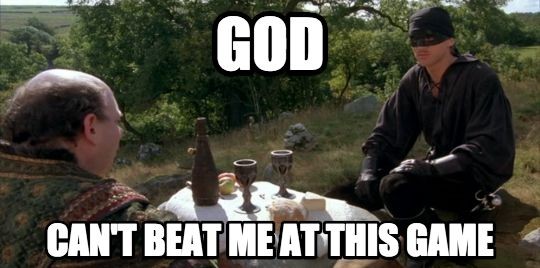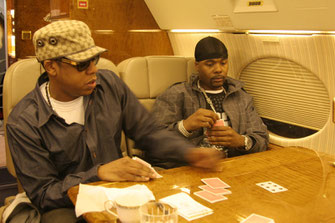Freedom and Ignorance
The idea that all of our actions are determined can be depressing. But even if we assume that they are, here's a really cool thing. We can never know what we are determined to do in any given moment. This isn't just because we are very complicated machines and it is hard to figure out what we are determined to do. God could figure it out. But even God couldn't tell us what we are determined to do!
Here's why. Let's say that at a given moment I am causally determined to raise my right hand. (I am in class and I want to contribute to the discussion.) God figures out what I am causally determined to do. Fair enough. But what happens if God tells me? Contrarian that I am, I will raise my left hand instead, or refrain from raising my hand at all.
This doesn't disprove determinism, and it doesn't impugn God's intelligence. When God figured out what I was going to do, the calculation did not involve the conversation I had with God in which God told me what I was determined to do. This conversation undermined the correctness of the calculation. Of course, God knew beforehand that God was going to tell me that, and God would take this into account, and would know exactly how I would react to this information.
But God still can't tell me the real prediction. Because I could then, in my contrary fashion, make that prediction false. I am still, we are assuming, fully determined, but I can't have knowledge of how I am determined. And neither can anyone who is in a position to undermine the prediction in similar, contrary fashion.

At least not if God tells me honestly what I'll pick before I choose.
The Ancient Greeks used to love to come up with stories in which a god's stated prediction to a human of what that human will do ends up being part of the causal chain leading to the human doing precisely that, even though the human really doesn't want to. But these stories had to be very cleverly crafted. That's why I would be bad at writing Greek myths. Here's my version.
Athena: Oedipus, you will raise your right hand in five seconds.
Oedipus: (raises left hand)

Tell me about how you signal your intention to speak.
Kant wrote: "we cannot act except under the presupposition of our own freedom." Even if determinism is true, when you are making a decision, you can't just sit there and think about what the laws of nature will determine you to do. Instead, you have to reflect on the reasons for and against various courses of action. And you must do this without certain knowledge of what you will end up doing.
People often feel very strongly that they are free, and that freedom involves the opportunity to choose one thing or another. This is a metaphysical view of freedom, where we are intervening in the world as forces of nature. Even if we don't have this kind of freedom, even if we are completely determined in our actions, we will always have the freedom of not being certain what we are going to do. Even if the future isn't really open, at least it seems like it is.
Wait!--you might object--sometimes I have a pretty good idea of what I will do and what my friends will do. That's correct. But you can't have certain knowledge of what you will do--even if God were to tell you.
Copyright 2019 by Sam Ruhmkorff

